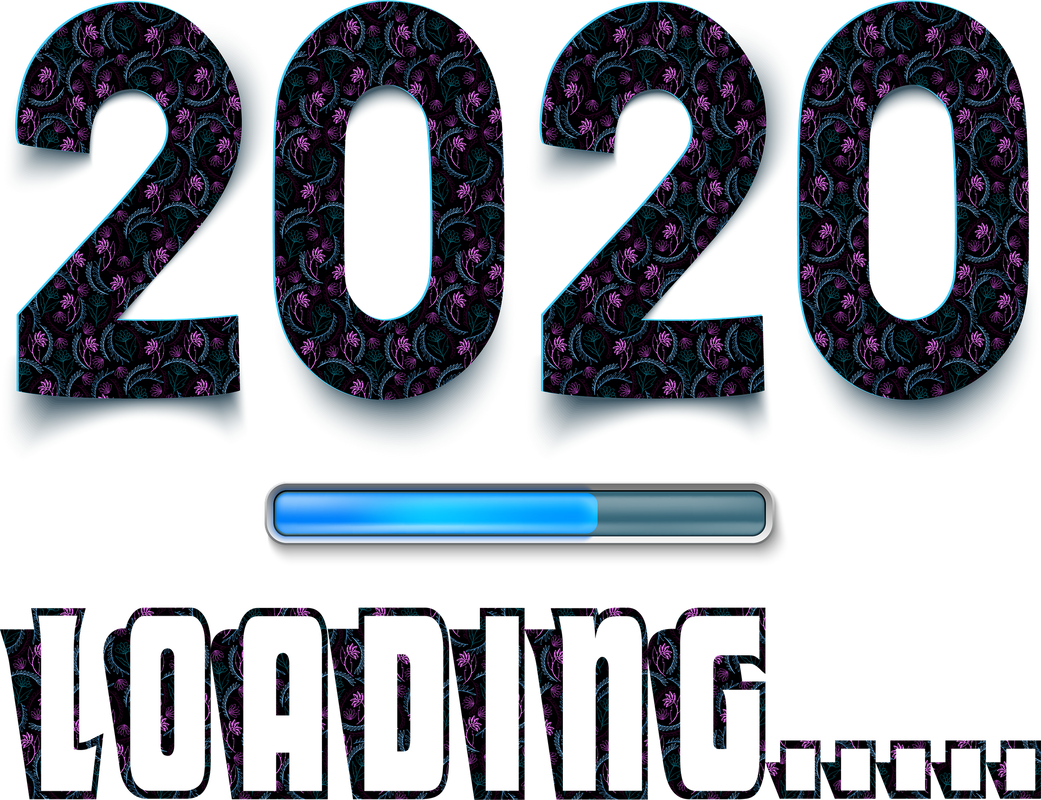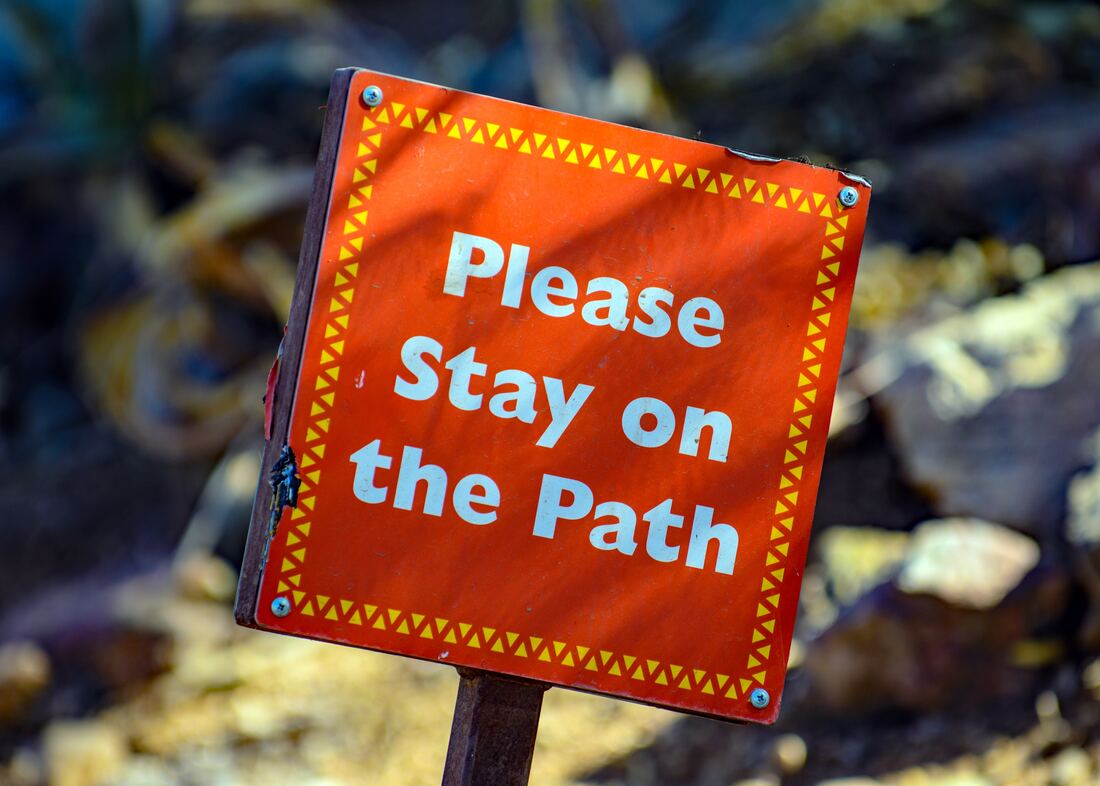|
12/30/2019 0 Comments The Power of BeginningsThere is something powerful about beginning. We feel fresh and full of excitement for what is to come, for what we’ll create. January represents a powerful time for beginnings. We create goals and resolutions for the coming year in January. We like the idea of a fresh start. Why? A fresh start is a kind of forgiveness of the past. We feel we can move on and leave what didn’t work behind. As long as we’re not running away from the past but have learned from it without judgement, we can move forward with fresh eyes and a clear heart. This is the power of beginnings. Recently I realized I was still holding onto something I did a long time ago. It was something I am not proud of and am still holding myself in severe judgement for. I know I did it because I was spinning due to rejection…my greatest fear. Inner work I did this past week brought it up again. These things rise in order to be healed. Can I allow myself a fresh start? Can I forgive myself for this finally? We all need to ask ourselves those questions before we truly move forward into the New Year. The work we do in the world, whether it’s writing or something else, needs for us to be free. We are the only ones who can free ourselves. Think about that and find a way to release and forgive. Your art deserves to have that freedom and so do you. Beginnings are also powerful because they can enrich our creative work. We can see every moment with fresh eyes instead of falling into habitual ways of seeing. We can begin again when we’ve been distracted. A mind trained to return to the work is a mind made fresh. To begin again, to see again is to fully enter into possibility. Can you imagine how much more inspired and productive you would be by adopting beginnings as a way of seeing and being? Take some time now and in the early days of January to release the past and yourself. And when you feel ready and as though you’ve done the best you can for now, envision all you want to do and feel in 2020. Then take those first new steps towards your dream. Happy New Year! If you’d like to get a great start on your writing in 2020, sign up for The Write Magic Newsletter and receive this blog and other free resources to help you get the writing done.
0 Comments
12/23/2019 1 Comment How to Turn Resolutions into ResultsHave you ever been a part of a live performance? Maybe it was a play, talk, concert, etc.? Remember how the date was set and everyone committed to putting on the show? And remember how it all came together in the end despite obstacles? Something magical happens when we have an exciting vision, create a deadline and commit to it. We are pulled by the vision and become really focused. In that heightened state all becomes possible. We have greater access to what we need in any moment and the stamina to keep going. As we head towards the New Year, people are coming up with resolutions and goals for 2020. 2020 is being labelled as the year of perfect vision. But most won’t make the changes they want to make and will have forgotten about their goals within the first quarter of the year. Why does this happen? It’s because we don’t give ourselves a clear and powerful vision, one we can truly commit to. When we’re committed we’ll persist through all the obstacles. And if we add a deadline, we become super focused. Your Vision A vision is bigger than a goal. Visions are embodied by achieving small, doable goals. Writing a book is a goal. The vision might be to be to help thousands of people and make the world a better place. Writing a book is just one goal to help you embody the vision of helping others. Discover Your Vision Ask yourself what it is you really want. Once you know that, ask yourself if you believe you can have it. We fall short on our New Year’s resolutions because we often don’t believe they’re possible. When we don’t believe, our job is to work with our thoughts and feelings about why we don’t believe. Once we build up our belief and feel confident, we can take action. Our actions towards our goals need to have certainty behind them or they won’t be powerful enough to get us and keep us motivated. Your Deadline The power of the deadline is in how it helps you zoom in on the essentials. With focus, you use time more wisely, take timely action and get things done. Just remember to have a deadline that is challenging but not impossible. Commitment Most change takes time and requires us to fail as we learn, which means we get impatient with the process. We haven’t been taught that failure is simply part of achieving goals. As you work towards your goals, learn to fail forward. Fail, learn from it, and then move on. Commitment is the ability to never give up. I say ability because it’s something you can learn. Change is challenging, but it’s less so if we understand how it comes about and if we check our thoughts and feelings. Last week’s blog How to Use the Power of Commitment to Get the Writing Done will show you how to really use commitment to get results. Are you ready for 2020? Don’t wait until January to begin. Get a head start on your writing vision for 2020 now. If you’re not already signed up for The Write Magic Newsletter, you can do so here and receive access to the blog and other free resources to help you get the writing done. Even better, contact me to learn more about how you can turn your resolution into results through coaching. Don’t let 2020 pass you by. Make it your year to finally find your voice and/or get the writing done. It is possible to be the writer you have always dreamed of being. For more than a couple of weeks now, I’ve written every single day. It’s a challenge I set for myself and few other writers in my Facebook group, The Writers Sangha. We’re going to write every day now until the end of the year. We’re committed to getting the writing done, to our dream. Recently I shared the story of my sporadic writing career. All my stops and starts there on the page made me realize it has taken me years to finally commit to writing. I’ve spent my life not letting myself fully go through the process commitment takes. Often we lose interest in what we’re doing. We fail to either choose a challenging enough goal or an exciting enough vision. Sometimes we simply get tired when the going gets tough. As we move towards our dream and work the goals that will get us there, there will be ups and downs and periods of stagnation. During these tough times, you have to keep going. That’s where your commitment is tested. Too many of us give up at that point. I almost always did. We need the big and challenging vision. We need the specific, measurable goals. We need to hold ourselves accountable. And we need to stay the course, understanding the process is filled with failure as well as triumph. Here are the ways to strengthen your commitment to get the writing done. Your Vision A vision is larger than a goal. It’s the big picture you have for your career or your life, and it helps you stay focused on what it is you truly want. A vision is about becoming and not just doing. In order for it to strengthen your commitment it needs to create excitement in you every time you think about it. It helps you to know your next steps and keeps you going when the journey is difficult. Your goals You create goals to help you embody your vision. Working towards your goals helps you stay on the path. Don’t make your goals too big. Your vision can be huge, but not the goals. You have to believe your goals are possible. But they also have to be challenging enough to hold your attention. That’s key. A good goal is doable, measurable and has a deadline. The more goals you achieve, the stronger your commitment becomes. The long and winding road Achieving goals and growing into your vision can and should be challenging. There will be times when you want to give up. There will be failures. All of this is simply a part of the process of growth. Knowing this can help you stay committed when things get tough. I only wish I understood the process early in life. But I know it now, and I’m more committed than ever. Accountability When things get difficult and you feel like quitting, having an accountability buddy or a coach helps you keep going. In the early stages of building your commitment, it’s essential to have some form of accountability. It’s too easy to give up or become half-hearted in your efforts. As you go along, you’ll get better at holding yourself accountable. But don’t be fooled, even as you become ever more committed to your dream, your mind will sometimes want to go back to its old patterns. This is especially true as you choose larger and larger goals and greater visions. Stay the course. Understand the process. Get help when needed and inspire yourself to greatness. Your dreams are worth it. You are worth it. If you’d like help staying committed and getting the writing done, sign up to receive this blog and other free resources one of which is The Writers Sangha, a Facebook group where you can find the accountability you need. Self-care is a buzz phrase these days, and you’ve probably read that it encompasses more than just bubble baths and spa days. If we truly care about ourselves, there are many things we’ll do to ensure our well-being. These include eating right, exercising, getting enough sleep, saying no to extra hours of work if we are not up to it, not pressuring ourselves to be perfect and so on. It’s a whole-being endeavor. What happens when you don’t take care of yourself? Your concentration goes out the window. Your desire turns into drift. Lack of concentration can show up in the following ways:
You can see how all of these would affect your ability to get the writing done. Lack of concentration can have physical, mental or emotional causes due to circumstances beyond our control. This post will focus on those things we can control so we can get the writing done. Get enough sleep If you want to kill your concentration quickly, sleep less. I’ve had some rough nights lately and ended up with four or five hours of sleep. In the morning after those nights, I found myself nodding off at my desk. Many of those symptoms of impaired concentration kick in almost immediately when we don’t get enough sleep. If I can get myself into a writing trance after such nights, I can get some work done. But that’s a big if. Also, sleep deprivation has a cumulative effect. It makes you feel worse and worse each day. For the most part, I try to get seven to eight hours of sleep. It makes a difference. Those nights when my mind is overthinking or ruminating on the past, I need to address it. When I don’t, I don’t sleep well. It’s important to have a bedtime routine that includes relaxation as well as journaling to help you release any angst or get all the rumination out on paper where it won’t stop you from sleeping. Feel your feelings Unprocessed feelings were mentioned above as a reason you may not be sleeping well. It can also directly interfere with your ability to write. If you’re worried about something or angry or sad, it has a direct effect on your ability to concentrate. Feelings can be consuming. Instead of trying to ignore your feelings, feel them and address what’s going on within. Journal about what’s going on in your life to understand it better. Getting it on the page gives you some distance to gain insights. And simply feeling your feelings helps you move through them. On the other side you may find your concentration again. You may also feel you don’t know enough or aren’t good enough as a writer. Journal about it to discover how to let these feelings go. Please know that these are just thoughts that are causing your feelings. Process the feelings and realize you can get better at writing and that you deserve to live your dreams. Eat well Ever try writing on an empty stomach? It’s not easy. Every grumble is a distraction. We can train ourselves to ignore the hunger pains as many a starving artist must have done, but why torture ourselves. And in the long run, our health suffers, and that contributes to an inability to concentrate. We can also ruin our ability to concentrate by eating too much junk food. It’s important to take the time to give our bodies and brains the proper nutrition. Increased concentration, which leads to being a more productive writer, is the result. Exercise It’s known that exercise can sharpen our ability to think and concentrate. It also improves our mood. All of this helps make us better writers. Sometimes when I’m working on a writing project, I go days without exercise. Increased anxiety and a feeling of sluggishness follow. My concentration goes down some because I don’t feel well. Long term it would probably worsen. And exercise doesn’t have to be jogging or going to the gym. I walk four to five times a week and lift small weights twice a week. I also try not to sit for more than an hour at a time. I just get up, move around and stretch. It helps to wake me up and refocus if needed. Our ability to concentrate is key to our success as writers. If you find you have trouble concentrating, take a look at your life and see if you can improve concentration by improving your well-being. Sometimes our concentration is impaired by something more serious than lack of self-care. Be sure to get help if you need it. If you’d like more helpful information like this, sign up for The Write Magic Newsletter and receive this weekly blog directly to your inbox and get access to other free resources as well. I love words. I love their sounds. I love their meanings. I love how they can be used to communicate ideas as well as create art. They are the medium we as writers work in. It’s important to not only know as many words as possible, it’s important to know how to choose the right ones for the greatest impact. Here are four ways to choose your words wisely. Know you audience The greatest impact comes from knowing your audience. Writers need to know who will read their work. If it’s an academic audience, not only do you have to use the right vocabulary, you need to know how to structure the book or paper. If you’re writing a novel, you need to write at the level of the age group of your readers. There are many things you need to be aware of regarding your audience. The marketing tool called a customer avatar will help you get to know your audience. Basically, you imagine an individual reader of your work. You describe them in great detail. What do they like to read, watch, etc.? What age are they? Where do they live? What do they do for a living? You can list some basic likes and dislikes. It’s like creating a character for a novel. Use these details to help you understand the vocabulary and structure you need to use to best communicate with your audience. Use words that work for the project itself You also have to choose wisely based on the work itself. This is especially true of poetry. The art forms in which you use words as your medium often have internal needs not attached to who the reader will be. A particular genre of fiction may have its own vocabulary. Be sure to read a number of books in the genre you plan on writing to make sure you understand what is needed. This is also true of nonfiction. You will need to know the vocabulary of the topic you’re writing about. Listen to your words For me, writing is all about sound. Even when I don’t read out loud, I hear the words in my head. I have to for them to make sense which is why I could never pick up speed reading. Whether this is true for you or not, the sounds of words are important. Certain groupings of words can sound clunky and hard to read. Don’t do this to your readers. Take the time to hear what you write. Read it out loud. If a line doesn’t sound good, pick a different word or rearrange the words until you get something that flows. Pay attention to multiple meanings Sometimes you write something meaning one thing, but a reader takes it to mean something else. As a writer it’s your job to communicate well. Make sure the words you choose convey exactly what you mean. Sometimes we don’t always catch these problems. Have someone else read your work on go over your own work very carefully. In poetry, multiple meanings are a great thing. You’re playing with words and ideas in a way that is meant to open up the reader. To write better poetry, it’s helpful to be aware of the multiple meaning of words. Words are the lifeblood of a writer. Learn to use them well and to choose wisely from the vast word-hoard available to you. If you’d like to read more helpful content like this, sign up for The Write Magic Blog and receive it and other free resources to help you get the writing done. |
Archives
December 2019
Categories |






 RSS Feed
RSS Feed
